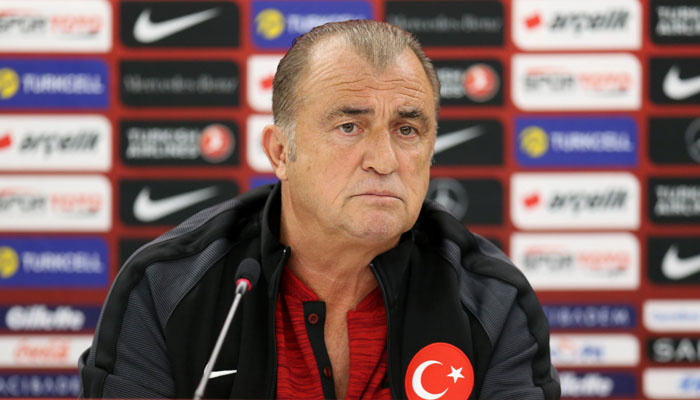The Turkish Youth and Sports Ministry has initiated an inquiry into sports people involved in a fraudulent multi-million dollar investment scheme that ensnared some of the country’s most prominent football stars.
The İstanbul Chief Public Prosecutor’s Office in April, following a complaint from the victims, launched an investigation to the allegations that Seçil Erzan, the former branch manager at Denizbank Levent, collected around 43 million US dollars and 15 million Turkish lira from 29 people.
After the investigation led to an indictment in November, Erzan and six other suspects were charged with “qualified fraud” and “forgery.”
Erzan, who faces 226 years in prison over the charges, stands at the heart of this controversy involving the “Fatih Terim Fund.”
Fatih Terim, an iconic figure in Turkish football, is associated with the scandal as Erzan lured investors with promises of astronomically high returns, as much as 40 percent a month, using Terim’s credentials to secure the trust of its footballer victims, who respected and trusted the legendary coach with a stellar career that includes rare achievements in European cups for Turkey’s Galatasaray football club.
The alleged victims, including former football stars such as Arda Turan and Selçuk İnan, were reportedly provided with nothing more substantial than handwritten notes or simple papers as proof of their investments, a stark departure from standard banking practice.
The ministry’s investigation will focus on the footballers and sports figures linked to Erzan, examining their relationships and the source of the funds involved.
Allegations of large sums of money being handed over in cash have raised suspicions regarding the source of these funds. The probe aims to expose the network of relationships involved in the fraud case, and the potential exists for some sports figures to face administrative penalties following the ministry’s investigation.
The ministry has also launched a comprehensive investigation into match-fixing in Turkish football, the Habertürk news website reported. This investigation reportedly also includes the fraud case and will inquire whether the money used and handed over in the recent fraud case is related to match-fixing.
The ministry probe to determine whether match-fixing was the source of the funds collected by Erzan brought to mind the 2011 match-fixing scandal in Turkey.
The match-fixing scandal became news in the summer of 2011 when police launched an investigation into 19 football matches suspected of being fixed, and by July 10, 61 people had been arrested, including then-Fenerbahçe Chairman Aziz Yıldırım and Turkish national players.
On July 2, 2012 a Turkish court convicted and sentenced Yıldırım to six years, three months in prison on match-fixing charges. Fenerbahçe’s then-vice chairman Şekip Mosturoğlu was sentenced to one year, 10 months in prison.
However, in 2015, two years after the Turkish government led by then-prime minister and current president Recep Tayyip Erdoğan responded to a corruption probe by law enforcement by cracking down on the police and judiciary, the match-fixing case was retried, and the court acquitted all the people who had been convicted. Following that, an indictment by the Bakırköy Chief Public Prosecutor’s Office accused 38 former judges and prosecutors of involvement in a conspiracy in the match-fixing investigation.
Denizbank’s statement
Denizbank, one of Turkey’s largest private banks with 15,000 employees and nearly 700 branches, has publicly addressed its connection to the scandal involving Erzan, a former branch manager.
According to a Denizbank statement on Tuesday, the issue came to light on April 7, 2023, when a complainant, also a customer of the bank, visited the Levent branch, formerly headed by Erzan.
The bank stated it had no involvement in the alleged scheme, emphasizing that the scandal was an isolated incident unrelated to the bank’s operations.
Denizbank highlighted its commitment to the ongoing legal process and underlined that Erzan’s actions were not connected to her duties at the bank and that the institution was unaware of her actions until the scandal broke.
Upon learning of the allegations, Denizbank said it immediately initiated an internal inquiry, while adding that efforts to contact Erzan on the day the allegations surfaced were unsuccessful. The bank later communicated with her, receiving a statement about her actions.
The bank said it has cooperated fully with authorities, providing necessary information and documentation to aid the investigation.
The bank emphasized that the scandal has led to widespread media speculation, with various outlets presenting one-sided views, often neglecting the bank’s official statements and expressed concern over the damage to its reputation due to the media’s portrayal of the incident.
Critics point to the necessity of investigating the involvement of the higher echelons of Denizbank about the scandal.
Some criticize the oversight mechanisms at Denizbank and whether signs of Erzan’s alleged activities were overlooked or ignored while speculating on the potential involvement of other high-ranking bank officials, suggesting that Erzan might not have acted alone.
According to a report by the Kronos news website, evidence found during a police search of Erzan’s home, including Excel spreadsheets, bank receipts and transfer records, indicates Denizbank’s direct involvement in the scandal. Tables showing debtors and creditors were reportedly prepared not by Erzan but by high-ranking officials at Denizbank.
Erzan’s statements in her defense and during the investigation suggest a concerted effort to distance the bank from the scandal. According to her account, she was coerced into claiming that the fraudulent activities were conducted outside the bank’s operations.
The BDDK decided not to file a complaint against the bank, which effectively removed Denizbank from the scope of the investigation.

